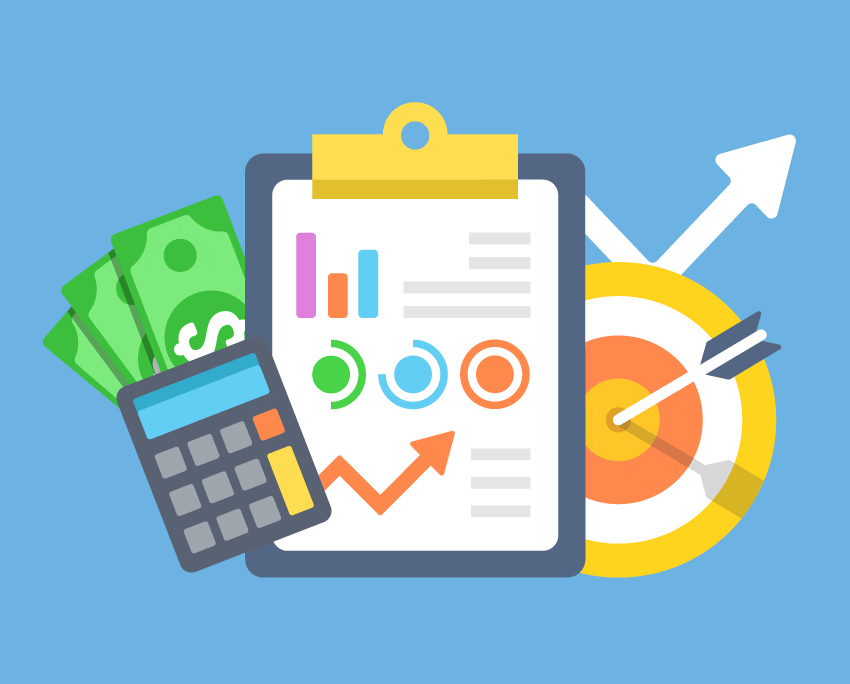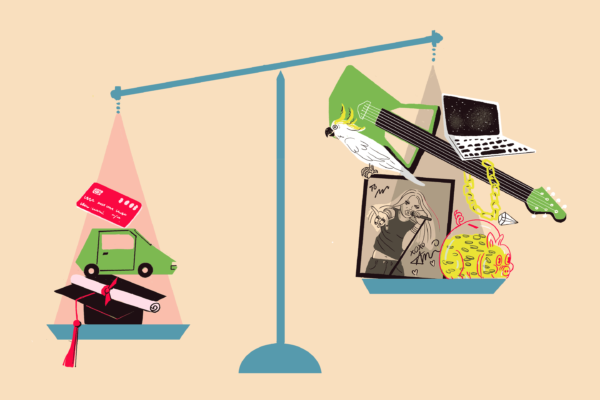Credit cards have become an integral part of our financial lives, offering convenience and flexibility in making purchases. However, they can also be a double-edged sword if not used responsibly. That’s why it’s important to know the pros and cons of credit cards before having them.
In this blog post, we’ll explore the world of credit cards, their pros and cons, and provide valuable insights to help you use your credit cards wisely.
Understanding Credit Cards
A credit card is a card that financial institutions issue that allows cardholders to borrow funds to make purchases or access cash advances. When a credit card is used for a purchase, the cardholder borrows money from the issuer. The cardholder must repay the borrowed amount, either in full or through monthly installment payments, along with any applicable interest charges and fees.
It’s like a magic wallet that lets you borrow money to buy things. Imagine having a small loan that you can use whenever you want to purchase stuff. When you get a credit card, the bank gives you a spending limit, which is the maximum amount of money you can borrow.
When you use a credit card to buy something, you’re basically borrowing money from the bank. You’re not using your own cash. You’re using the bank’s money. But remember, this isn’t free money! The bank gives you a certain amount of time (usually a month) to pay back what you borrowed. If you pay it all back within that time, you won’t have to pay any extra fees. But if you don’t pay it all back, the bank charges you extra interest for borrowing their money.
Think of it like this: you have a small loan that you can use to buy things, but you’ve got to pay it back on time, or else it gets more expensive. And the more you borrow without paying back, the more it costs you in the long run. So, it’s like having a special tool to buy things now, but you’ve got to be responsible and pay back what you borrow to avoid extra costs.

Credit Card vs. Debit Card
Now, credit cards are not the only type of cards. There are also debit cards. You spend what you have rather than borrowing, which poses no risk at all besides spending your own money.
A credit card is basically borrowing money from the card issuer, while a debit card deducts funds directly from the cardholder’s bank account. This fundamental difference affects the payment process, liability for fraudulent transactions, and potential debt accumulation.
Credit cards offer greater purchase protection, rewards, and the ability to build a credit history. However, debit cards provide more control over spending and limit the risk of accumulating debt.

Types of Credit Cards
- Standard Credit Cards: These are cards with a predetermined credit limit, and the cardholder can make purchases up to that limit.
- Rewards Credit Cards: Cards with various rewards, such as cashback, travel points, or discounts, based on the cardholder’s spending.
- Secured Credit Cards: These cards are made for individuals with limited or poor credit history. They require a security deposit as collateral.
- Balance Transfer Credit Cards: These cards allow cardholders to transfer the debt balance from one card to another. It generally comes with lower interest rates or promotional offers.
Pros of Credit Cards
It all looks fun and games, and yes, that is mostly true. Credit cards have a lot of pros. Here are some of the most important pros of owning and using a credit card.
Building Credit History
Credit cards are an effective tool for establishing and improving your credit history. If you make your payments on time and keep a low credit utilization ratio, you can increase your credit score. It will be easier to get loans you need or obtain favorable interest rates in the future.
For individuals with limited or no credit history, using a credit card responsibly and wisely is a great way to establish creditworthiness, making it easier to secure loans or obtain other forms of credit in the future.

Purchase Protection
Credit cards often come with built-in protection against fraud and unauthorized transactions. Many credit card issuers also provide extended warranties and purchase insurance, safeguarding your purchases from damage, loss, or theft.
Most of the big credit card issuers offer extended warranty protection on purchases made with their cards, providing additional coverage beyond the manufacturer’s warranty period. Some cards also offer purchase insurance, reimbursing you for damaged or stolen items within a specified timeframe.
Rewards and Cash Back
One of the most enticing benefits of credit cards is the potential to earn rewards and cashback on your purchases. Credit card rewards programs tend to help you cut costs and save money or enjoy exclusive perks, from travel points to cash rebates.
Some credit cards provide travel rewards through points or miles. You can then redeem these for flights, hotel stays, or other travel-related expenses. This can help you save money on vacations or business trips.

Emergency Source of Funds
Unexpected expenses can arise anytime, and having a credit card can provide a safety net. In emergencies, a credit card can be a valuable resource to cover immediate costs until you can access other funds.
Credit cards are particularly useful when traveling, as they can be used internationally and provide a secure payment method. Additionally, many credit cards offer favorable foreign exchange rates, saving you money on currency conversions.
Ease of Use
Credit cards are generally accepted worldwide. That’s why they are a convenient payment option for both online and offline transactions. You can complete your purchase quickly and securely.
Cons of Credit Cards
But it’s not all fun and games. Credit cards can also be someone’s worst nightmare if you don’t use them correctly and wisely. They pose great risks and could ruin you financially. Here are some of the most important cons of credit cards.

Potential for Debt
While credit cards can offer financial flexibility, they also pose a risk of accumulating debt. It’s easy to overspend and carry a balance, resulting in high interest charges and long-term financial strain.
Interest and Fees
Credit cards often come with high interest rates and various fees, including annual fees, late payment fees, and balance transfer fees. If you can’t pay off your balance in full each month, this can lead to substantial interest charges. You will end up paying more than the overall cost of your purchases.
Credit Score Impact
Irresponsible credit card usage, such as maxing out your credit limit or missing payments, can harm your credit score. A low credit score makes it harder to secure loans or obtain favorable interest rates in the future.
Fraud Risk
Credit card fraud is a big security concern for credit cards with a high use of online shopping and digital transactions. Even though credit card issuers have their own security measures, you must still monitor your accounts regularly for any suspicious activity.
Overspending Temptation
Because you are not technically spending any money at the time, it can tempt individuals to overspend beyond their means. Without proper budgeting and self-control, credit card debt can quickly spiral out of control.
Factors to Consider Before Getting a Credit Card
- Personal Financial Situation. Assess your income level and stability to determine if you have the financial means to manage a credit card responsibly. Evaluate your current debt obligations, such as student loans or mortgages, to understand how a credit card will fit into your financial goals. Ensure that adding a credit card will not strain your ability to meet your existing debt obligations.
- Spending Habits. Take a close look at your spending habits and assess your ability to stick to a budget. Consider whether you have the discipline to use a credit card as a payment tool without succumbing to excessive spending or accumulating unnecessary debt. Determine if your financial goals align with the use of a credit card. For example, if you are saving for a specific milestone or trying to pay off existing debts, it may be wise to focus on those goals before obtaining a credit card.
- Responsibility and Self-Control. Consider if you can make payments on time and manage your credit card responsibly, avoiding unnecessary debt.
- Interest Rates and Fees. Research and compare credit card offers from different issuers to find the ones with favorable interest rates and fewer fees that align with your financial goals.
How to Use Credit Cards Wisely

- Pay off balances on time.
- Use your credit wisely without overspending.
- Monitor your accounts frequently.
- Understand your card’s terms and learn about their benefits and drawbacks.
Conclusion
Navigating credit cards can be both advantageous and risky, you must learn about credit cards pros and cons deeply. On one hand, they can help build credit history, offer purchase protection and rewards, and serve as an emergency fund. On the other hand, they can lead to potential debt, high interest rates, credit score impact, fraud susceptibility, and the temptation to overspend. One must weigh the credit cards pros and cons before deciding to use a credit card.
Before you start using credit cards, you have to consider your financial situation, goals, spending habits, level of responsibility, and understanding of interest rates and fees. To make the most of credit cards while minimizing risks, use them responsibly, make timely payments, exercise self-control, and monitor your account closely. Keep in mind that credit cards are a financial tool, and their impact on your financial health depends on how you use them.




